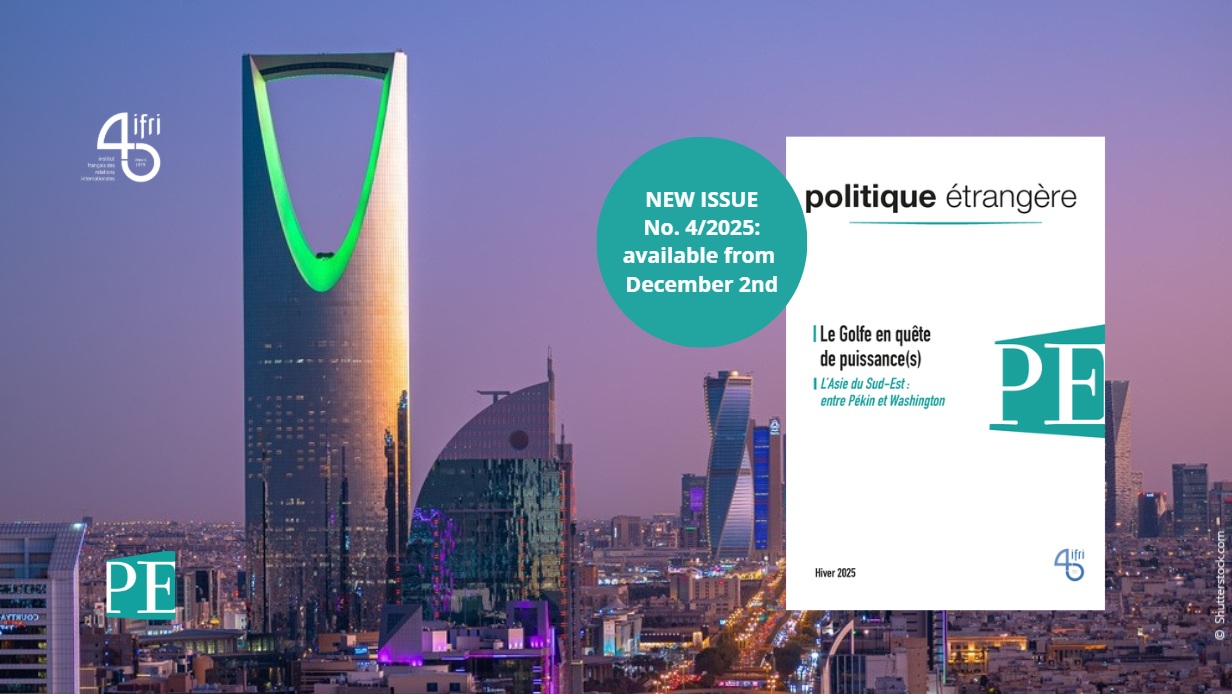North Africa and Middle East
Analysis of changing dynamics in the North Africa/Middle East region, against a backdrop of increasing security crises and their political, economic and energy consequences.
Related Subjects

The Gulf Search for Power(s) / Politique étrangère, Vol. 90, No. 4, 2025

Persian Gulf countries have become heavyweights in the international arena, wielding influence both regionally and far beyond. Acting as diplomatic mediators, investors, and hosts of global events, they are attempting to move beyond their long-standing role as suppliers of energy resources and reshape their economic, social, and political foundations through ambitious national “Visions”. Their international alliances are proving increasingly flexible, broadening their diplomatic reach (even if Washington’s influence remains decisive)—with Saudi Arabia, Qatar, and the United Arab Emirates all part of a dynamic pushing many global actors toward multi-alignment.

South Lebanon: Crisis Scenarios
This "Note" tries to define the more credible scenarios for South-Lebanon, and to identify the main threats to current Middle Eastern stability.

Army and Nation in Egypt: Civil and Military Power
Since Mehmed Ali, the army has been at the heart of all sociopolitical evolutions in Egypt.


Afro-Asian States: Actors on, or Challenges for, the International Political Stage?


The Israeli Changing Security Agenda: Army- Society Relations
This 'Note' aims at giving a better understanding of the very specific and complex ties which link the Israeli nation to its army.

The Arab States and the Islamic Protest
This book provides an analysis of the complicated relations between Arabic States (Algeria, Saudi Arabia, Egypt, Jordania, Lebanon, Marocco, Syria, Tunisia, Yemen) and islamic protest movements.


Security Perceptions and National Strategies in the Middle East
With quite a subjective approach, this book tries to analyze how are shaped national security perceptions and strategies in the Middle East.

Support independent French research
Ifri, a foundation recognized as being of public utility, relies largely on private donors – companies and individuals – to guarantee its sustainability and intellectual independence. Through their funding, donors help maintain the Institute's position among the world's leading think tanks. By benefiting from an internationally recognized network and expertise, donors refine their understanding of geopolitical risk and its consequences on global politics and the economy. In 2025, Ifri supports more than 80 French and foreign companies and organizations.








